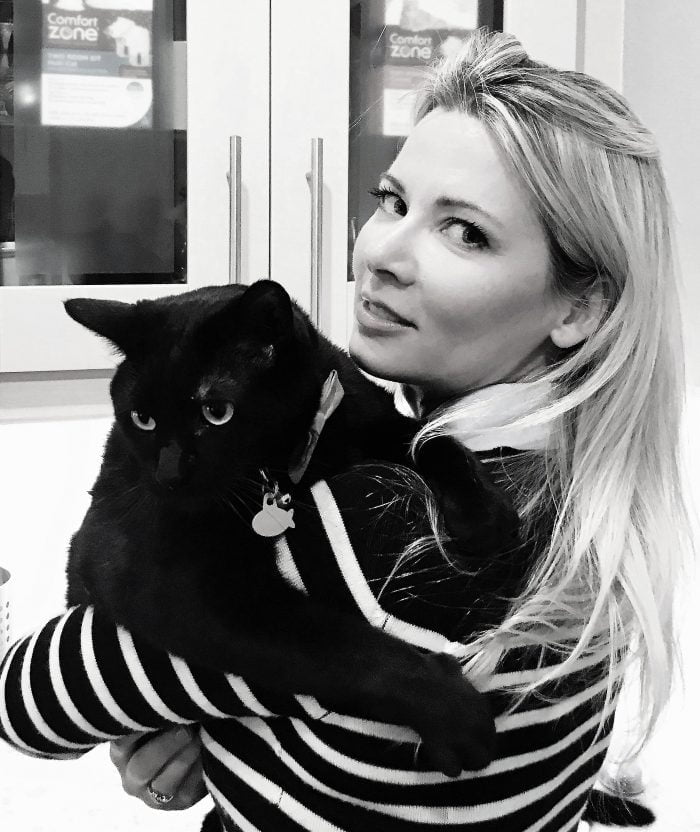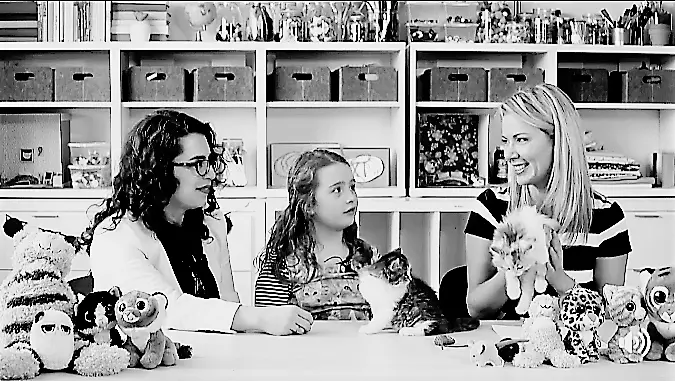How do cats behave when humans are pregnant?
Table of Contents
Section 1: Understanding Cat Behavior
Section 2: Understanding the Reasons Behind Cat Behavior
Introduction

The bond between humans and their feline companions is a unique and cherished one. Cats often become an integral part of the family, providing comfort and companionship. However, when a member of the family is pregnant, both humans and their feline friends may experience a range of emotions and behavioral changes. In this blog post, we will explore cat behavior when humans are pregnant, shedding light on the common reactions, potential reasons behind these behaviors, and tips on how to ensure a smooth transition for your cat during this special time.
Q: How do cats behave when humans are pregnant?
A: By recognizing common cat behaviors during pregnancy, the reasons behind these behaviors, and following the tips provided in this blog, you can ensure a smooth transition for both you and your feline companion.
Section 1: Understanding Cat Behavior
To comprehend a cat’s behavior when a member of the household is pregnant, it is essential to first understand the nature of cats. Cats are known for their independence, territoriality, and sensitivity to changes in their environment. These traits can lead to various reactions and adjustments when they sense that a significant change, such as a pregnancy, is occurring.
Common Cat Behaviors During Pregnancy
1. Increased Affection:
Many cats become more affectionate when their owners are pregnant. They may seek more attention, purr frequently, and engage in more physical contact. This behavior is often a cat’s way of showing support and protection.
2. Protective Instincts:
Cats are known for their territorial nature, and when they sense a pregnant owner, their protective instincts may kick in. They may become more vigilant, guarding their owner, and being more alert to potential threats.
3. Attachment:
Some cats may become particularly attached to their pregnant owner. They may follow them around more, stay close, and even try to be near during activities such as napping or relaxation. This attachment is often a sign of their desire to be a part of the pregnancy process.
4. Changes in Routine:
Cats are creatures of habit, and a pregnancy can disrupt their daily routines. Pregnant women may have different schedules, energy levels, and activities, which can affect a cat’s daily routine. Cats may adjust by sleeping more or becoming more active during specific times.
5. Increased Vocalization:
Some cats may become more vocal when a family member is pregnant. They may meow or vocalize more frequently, possibly as a way to communicate their needs or concerns.
6. Stress or Anxiety:
On the flip side, not all cats react positively to a pregnancy. Some cats may become stressed or anxious due to the changes in their environment. They might exhibit behaviors such as hiding, avoiding contact, or displaying signs of distress.
Section 2: Understanding the Reasons Behind Cat Behavior
To interpret your cat’s reactions during your pregnancy, it is essential to consider the underlying reasons for their behavior:
1. Scent and Hormones:
Cats have a highly developed sense of smell. They can detect changes in their owner’s scent due to hormonal shifts during pregnancy. This heightened sense of smell may lead to changes in their behavior.
2. Empathy and Bond:
Cats can sense changes in their owner’s emotional state and may respond with increased affection and support. Their attachment and protectiveness may be a result of a strong bond and empathy for their pregnant owner.
3. Routine Changes:
Changes in routine can impact your cat’s behavior. Cats thrive on consistency, so alterations in feeding schedules, playtime, or attention may cause them to adapt or act out.
4. Stress:
Pregnancy can be a source of stress for some cats, especially if they perceive it as a significant disruption to their daily life. Stress can manifest as avoidance, vocalization, or changes in eating habits.
Section 3: Tips for a Smooth Transition
Ensuring a smooth transition for your cat during pregnancy is essential for both your pet’s well-being and your own peace of mind. Here are some tips to help you and your cat navigate this special time:
1. Maintain Routine:
Try to keep your cat’s routine as consistent as possible. Feed them at the same times, provide regular play sessions, and maintain their usual sleeping arrangements.
2. Provide Safe Spaces:

Create safe spaces where your cat can retreat if they feel overwhelmed. A quiet, comfortable corner or a cozy cat bed can offer a sanctuary for your feline friend.
3. Positive Reinforcement:
Encourage and reward good behavior. If your cat shows affection or calmness, praise them with treats, cuddles, or extra playtime.
4. Consult Your Veterinarian:
If your cat is exhibiting signs of stress or anxiety, consult your veterinarian. They can provide guidance on managing your cat’s emotions and recommend potential solutions.
5. Gradual Introduction:
If you are planning to make any changes to your cat’s environment, such as setting up a nursery, do so gradually. Allow your cat to explore the new space at their own pace.
6. Maintain Hygiene:
Due to their heightened sense of smell, pregnant women may become more sensitive to odors, including cat litter. Consider using unscented litter and have someone else handle the litter box if possible.
Conclusion
Understanding cat behavior when humans are pregnant is essential for maintaining a harmonious household during this significant life event. Cats can react in various ways, from increased affection and protectiveness to stress and anxiety. By recognizing the reasons behind their behavior and following the tips provided, you can ensure a smooth transition for both you and your feline companion. Remember that every cat is unique, so be patient and attentive to its needs as you navigate this journey together. With love and understanding, your cat can remain a loyal and supportive member of your growing family.


